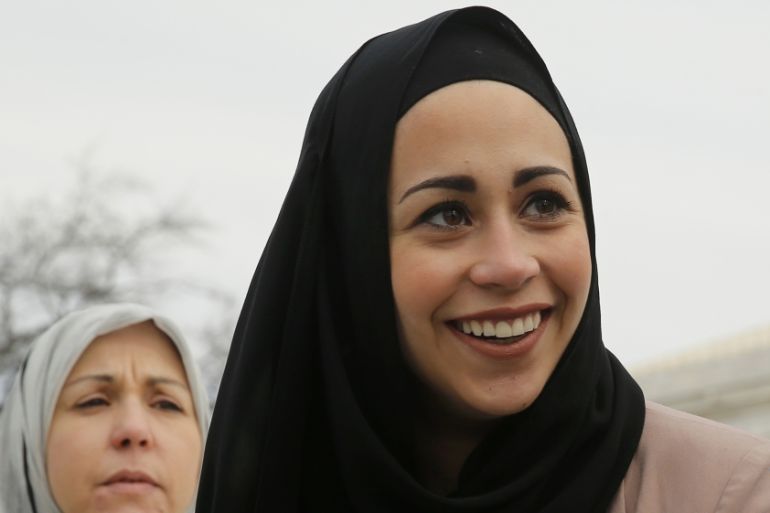US Muslim wins hijab case against Abercrombie & Fitch
Supreme Court rules in favour of Muslim woman who said clothing label denied her a job because of her headscarf.

The US Supreme Court has ruled in favour of a Muslim woman who filed a lawsuit after she was denied a job at the Abercrombie & Fitch clothing chain because she wore a headscarf for religious reasons.
On an eight to one vote, the court handed a win on Monday to the US Equal Employment Opportunity Commission (EEOC), a federal agency that sued the company on behalf of Samantha Elauf, who was denied a sales job in 2008 at a store in the state of Oklahoma when she was 17.
Keep reading
list of 4 itemsPalestinian Prisoner’s Day: How many are still in Israeli detention?
‘Mama we’re dying’: Only able to hear her kids in Gaza in their final days
Europe pledges to boost aid to Sudan on unwelcome war anniversary
The company denied Elauf the job on the grounds that wearing the scarf violated its “look policy” for members of the sales staff, a policy intended to promote the brand’s East Coast collegiate image.
The ruling was welcomed by the Council on American Islamic Relations (CAIR), which campaigns for the civil liberties of Muslim communities in the US.
“We welcome this historic ruling in defence of religious freedom at a time when the American Muslim community is facing increased levels of Islamophobia,” said CAIR National Executive Director Nihad Awad.
“We applaud Samantha’s courage in standing up for her rights by contacting CAIR, which led to the EEOC lawsuit and to our amicus brief filed with the court.”
The legal question before the court was whether Elauf was required to ask for a religious accommodation in order for the company to be sued under the 1964 Civil Rights Act, which, among other things, bans employment discrimination based on religious beliefs and practices.
Elauf was wearing a headscarf, or hijab, at the job interview but did not specifically say that, as a Muslim, she wanted the company to give her a religious accommodation.
The EEOC has reported that Muslims file more employment claims about discrimination and the failure to provide religious accommodations than any other religious group.